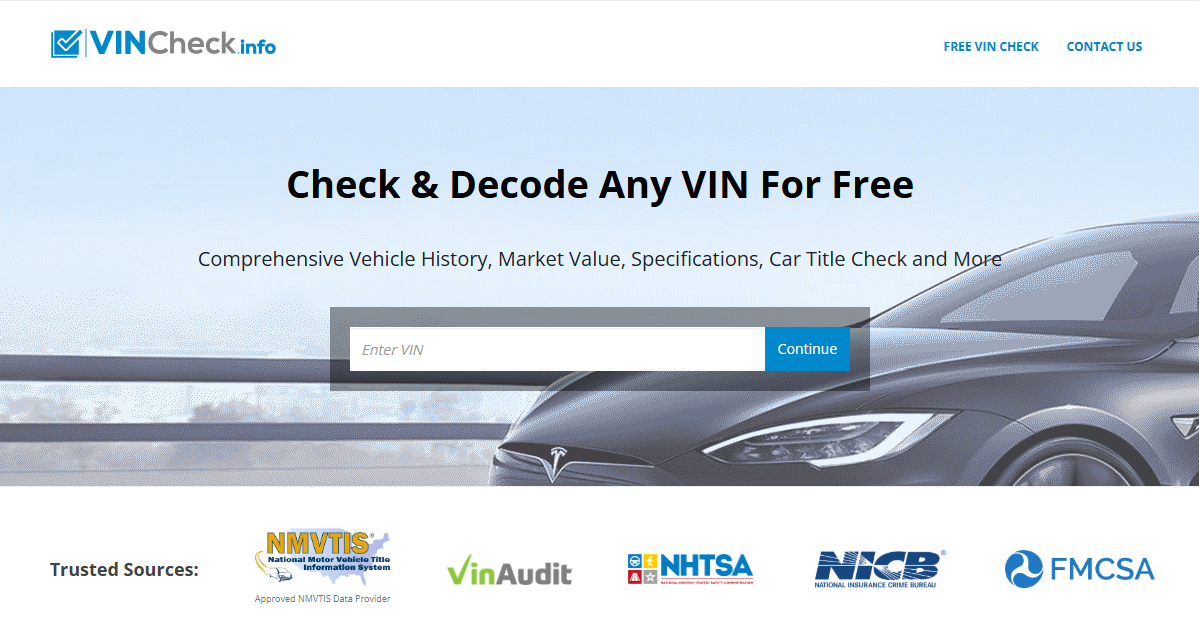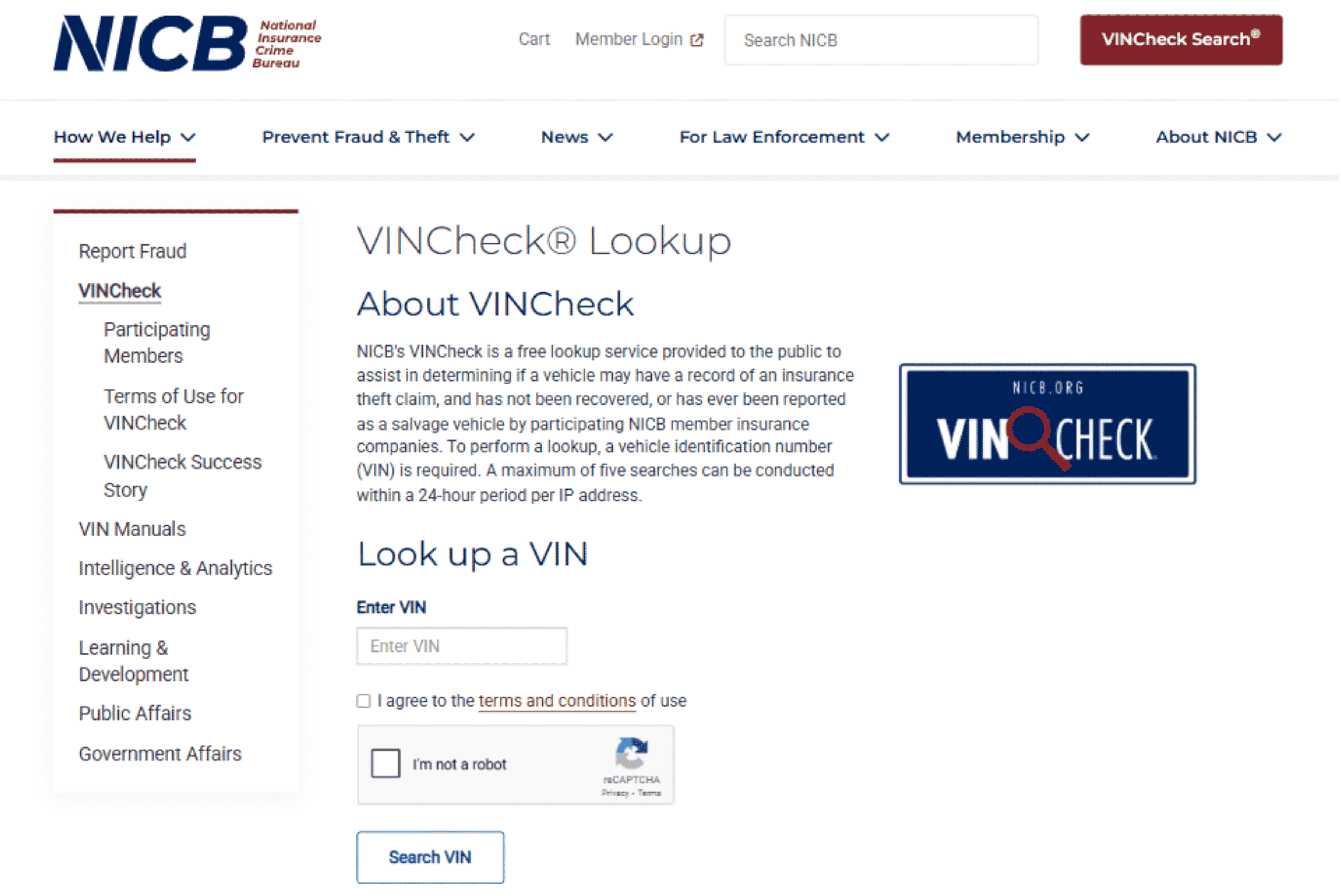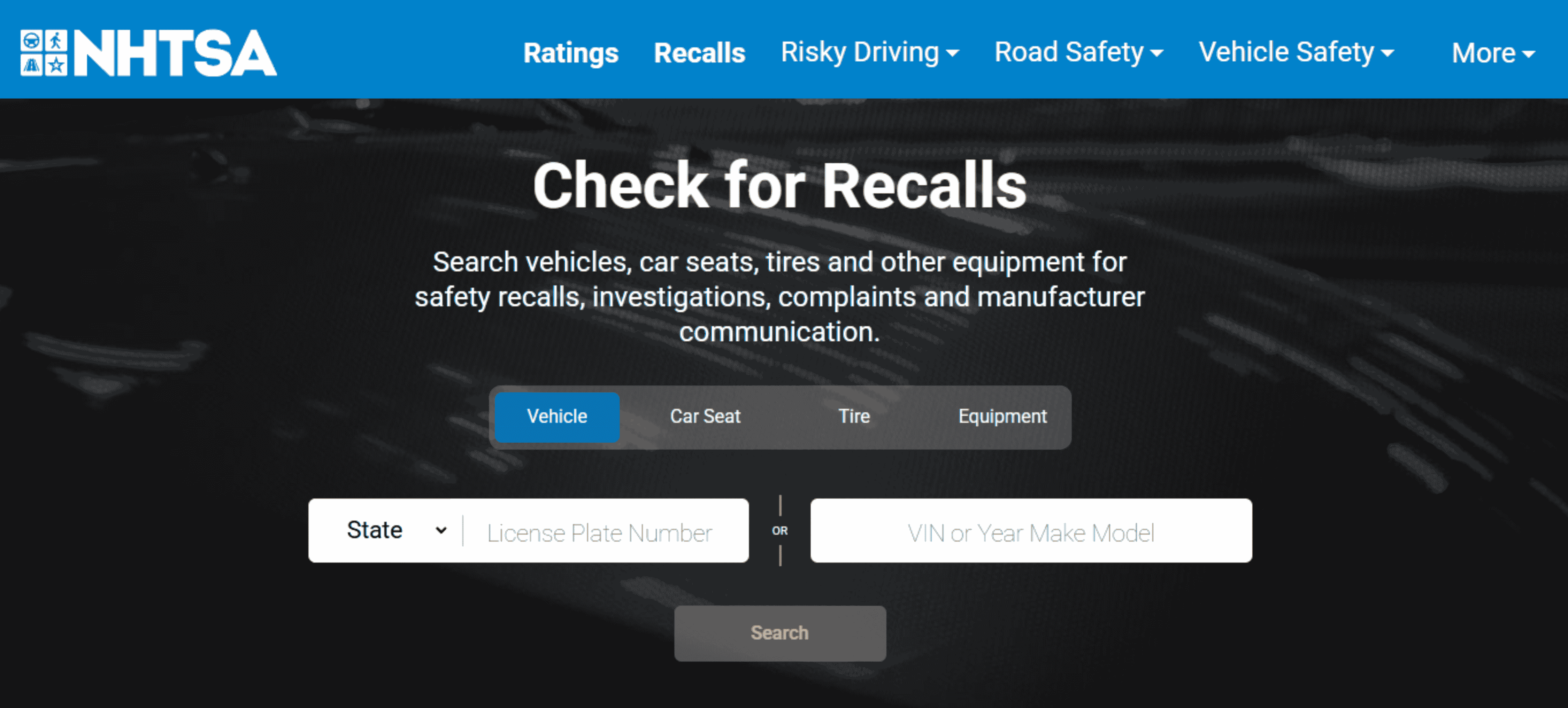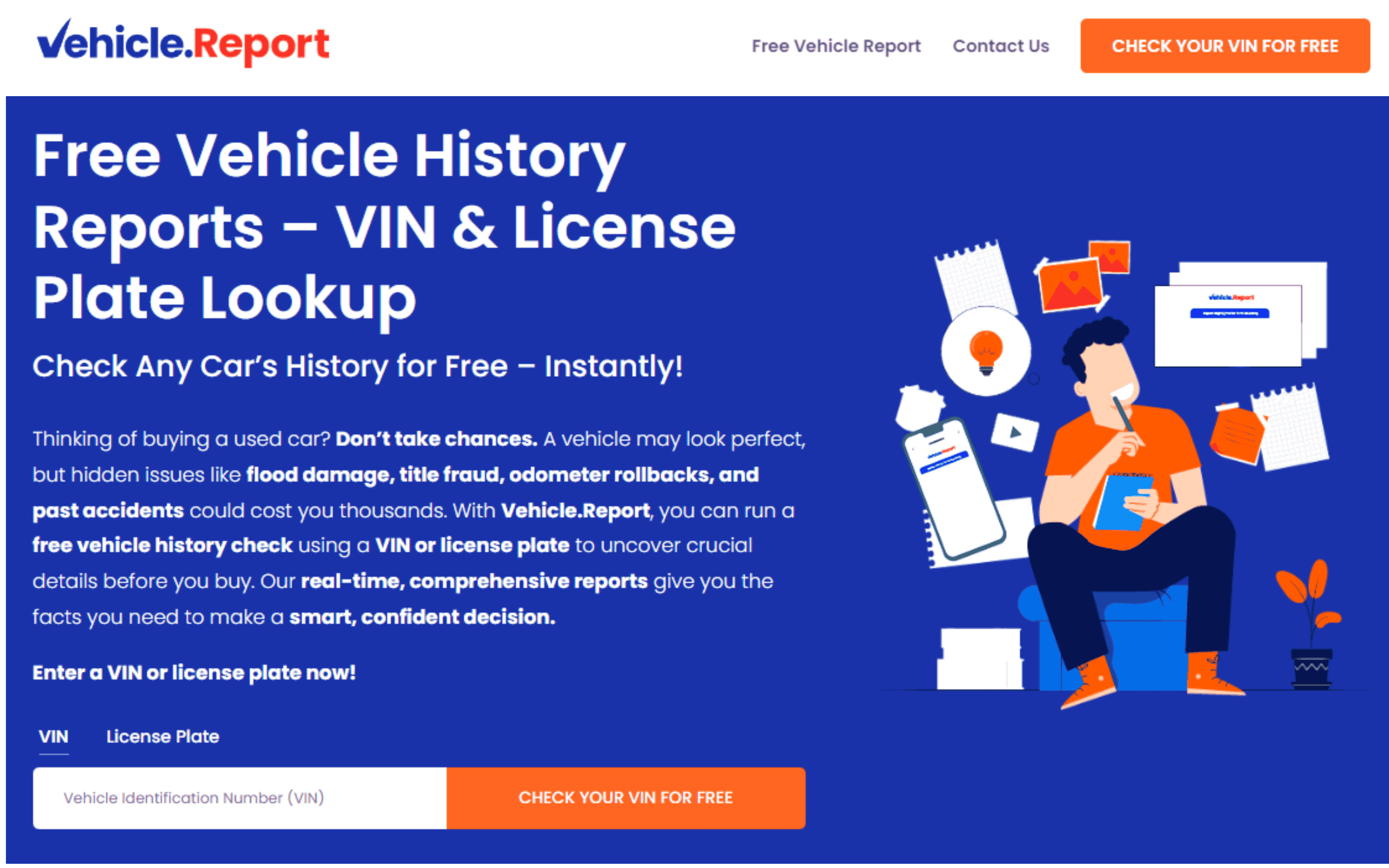Free Carfax Alternative: How to Run a Free VIN Check Before You Buy
Are you buying a used car? Selling your old one? Or just curious about a vehicle’s details? If you want fast answers without breaking the bank, finding a free Carfax alternative is the smart move. Our free VIN decoder tool helps you discover key vehicle details in seconds—no subscriptions, no hidden fees.
So if you’re ready to learn more about your vehicle, start now. Use the Carfax free alternative lookup below and take the first step toward smart car decisions.
How a Free Carfax Lookup Can Help You
Before paying for premium reports, a free Carfax alternative can often provide all the essentials you need:
- Buying a Used Car? Catch red flags early—accidents, title brands, or odometer tampering.
- Selling Your Car? Show potential buyers a clean history to build trust and close the deal faster.
- Double-Checking Listings? Verify if the seller’s claims match the real vehicle records.
- Receiving a Gifted or Inherited Car? Understand past recalls, ownership history, and potential issues before you commit.
- Curious About Specs or Recalls? Quickly access essential data about any car without paying for full reports.
Use our free Carfax alternative page now—featured on the homepage, the sidebar, and in the footer under “Free Tools.”
Why Free Carfax Alternatives Matter—And Why You Should Use One First
Before you spend money on a Carfax report, think again. Many free Carfax alternatives offer the same key details—without costing you anything. If you’re buying, selling, or just curious about a used car, starting with a free history check is always a smart move.
A fast, free VIN lookup gives you real answers. It shows accident records, title issues, odometer tampering, and other warning signs. With this info, you can avoid scams, make better choices, and stay confident when you negotiate. Best of all, the right tool gives you the facts—completely free.
Let’s break down why a free Carfax alternative should always come first:
- Catch scams early: Some cars may look perfect, but free checks can reveal what the seller won’t tell you.
- Avoid paying for a Carfax report unless you need it: Free options often show the same critical data.
- Negotiate like a pro: When you know the real history, you hold the power.
- Save time and skip stress: Use the report to quickly remove risky cars from your list.
- Speed up your loan or insurance approval: Verified records make the process easier.
- Protect future resale value: Buying a clean car now helps you sell it faster later.
In short, you don’t need to spend money to protect yourself. Free Carfax alternatives offer a simple, smart, and budget-friendly way to shop with confidence.
What a Free VIN Check Can Reveal
A free Carfax alternative can show you much more than you might expect:
- Vehicle Specs: See the basics like the car’s make, model, trim, engine, and drivetrain.
- Title History: Check for red flags like salvage titles, flood damage, or lemon law returns.
- Odometer Records: Watch for strange mileage changes or signs of tampering.
- Accident History: Look up crash reports from public records or insurance files.
- Open Recalls: Make sure the car has no unfixed safety problems.
- Sales History: Learn how often the car changed hands over the years.
- Fuel Efficiency: Find out how many miles per gallon the car usually gets.
- Insurance: Discover what might raise or lower your insurance costs.
- Liens : Check if someone still owes money on the car before you buy it.
- Market Value: Estimate the current resale or trade-in value based on similar vehicles, similar to KBB.
- Ownership Cost: Understand typical expenses like maintenance, repairs, insurance, and depreciation.
- Safety Ratings: Review crash-test results and safety scores from trusted agencies like IIHS-HLDI and NHTSA.
And the best part? It’s completely free—no signups, no payments.
Best Free Carfax Alternative Options
Not all free VIN check services give you the same details. Let’s break down how each one compares:
| Service | Features | Best For | Additional Sources |
| VinCheck.info | Specs, titles, accidents, recalls, theft, salvage, and more! | Best all-around free option | NMVTIS, NHTSA, state DMV, and insurance databases |
| NICB (National Insurance Crime Bureau) | Theft and salvage check only | Quick theft checks | Insurance industry records, NMVTIS |
| NHTSA Recall Lookup | Open recalls only | Safety recall checks | NHTSA manufacturer databases |
| Vehicle.report | Basic history report, salvage, mileage, and ownership details | Simple, user-friendly reports | NMVTIS, auction listings, and odometer sources |
| VinCheckPro.com | Title checks, accidents, recalls, theft, specs, and sales listings | Broad coverage with extras | NMVTIS, NHTSA, dealer networks, and classifieds |
Take control of your car-buying journey—start with a free VIN decoder tool today.
The Best Free Carfax Alternatives of 2025
Smart car buyers hate wasting money. So, instead of paying for a Carfax report, many turn to free choices. These Carfax alternatives give useful details—and they won’t cost a thing.
1. VinCheck.info

VinCheck.info stands out as the best free Carfax alternative. It gives you detailed info about a vehicle’s history—completely free. You’ll see data from trusted sources like NMVTIS, NHTSA, and state DMV records.
A typical VinCheck.info report may include:
- Vehicle Specifications
- Title Brands and Status
- Theft and Salvage Records
- Accident History
- Recalls and Safety Ratings
- Market Value and Ownership Cost
- NMVTIS and NHTSA Data
If you’re after a free VIN check that competes with Carfax, VinCheck.info is the one to start with.
2. NICB VINCheck Lookup

NICB (National Insurance Crime Bureau) gives you a free and trusted VIN check. This tool shows if a car was stolen or marked as salvage. You can run up to five searches each day. Even with that limit, it’s still a fast and simple way to catch major problems.
What it reveals:
- Theft Claims
- Salvage Records
3. NHTSA Recall Lookup

Worried about open safety recalls? The NHTSA Recall Lookup Tool can help. It comes directly from the National Highway Traffic Safety Administration, so the info is dependable.
What it covers:
- All major open safety recalls within the past 15 years
- VINs from cars, motorcycles, and trucks
- Data from over 60+ major automakers
What it doesn’t:
- Non-safety recalls
- Recalls older than 15 years
- Recalls from lesser-known automakers
4. Vehicle.report

Launched in 2021, Vehicle.report offers free, ad-supported car history reports. The website works great on phones and tablets, which makes it easy for casual shoppers to use on the go.
This tool shows:
- Basic Title and Ownership History
- Salvage Events
- Mileage Anomalies
- Vehicle Specs
5. VinCheckPro.com

VinCheckPro.com gives you a free, detailed report that includes license plate lookups too. It’s perfect for buyers who want useful tools without spending money.
Reports include:
- Title History
- Accident and Recall Reports
- Vehicle Specs and Sales Data
- Market Value & Equipment Details
Ready to dive into the history of your next car—without paying for a Carfax report? Try one (or all) of these trusted Free Carfax alternatives today.
When to Upgrade to a Paid Report
A free Carfax alternative is perfect for quick checks, but you may want a full report if:
- Buying a rare, luxury, or imported car
- Title appears branded or suspicious
- Checking for active liens
- Verifying accident records across multiple databases
- Needing service/maintenance history
- Ensuring no odometer fraud
- Buying from a private seller
Spending a little extra can save you thousands later.